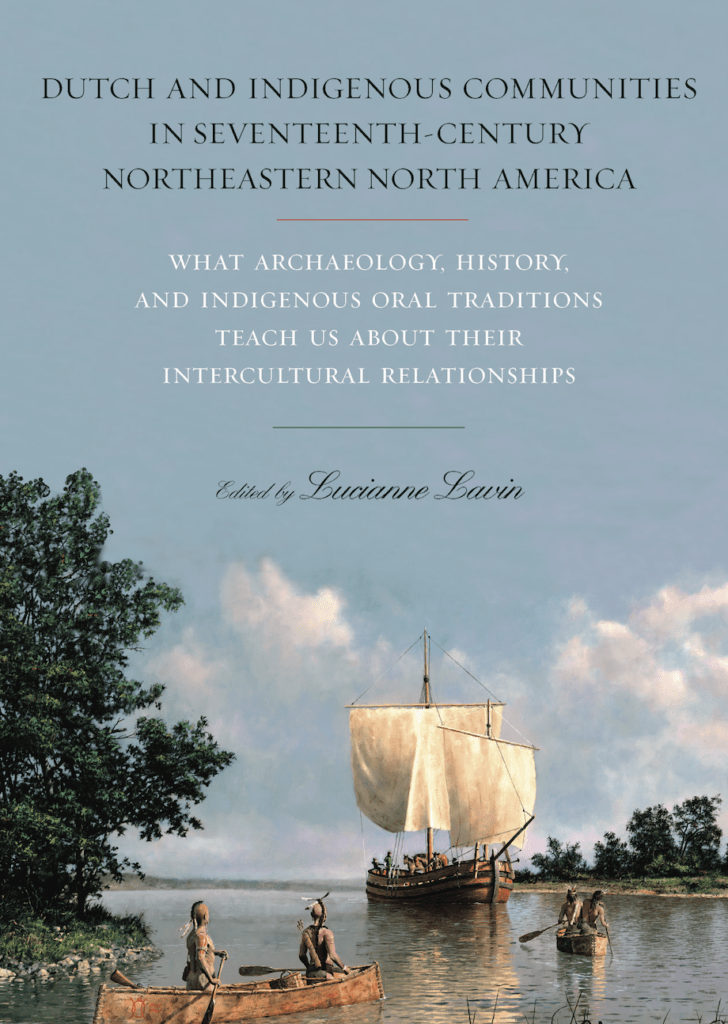may, 2023

Event Details
Please join the Gunn Museum for our lecture "Dutch-Native American Relationships in Eastern New Netherland (That’s Connecticut, Folks!)" with Dr. Lucianne Lavin. This lecture is free and will be presented
Event Details
Please join the Gunn Museum for our lecture “Dutch-Native American Relationships in Eastern New Netherland (That’s Connecticut, Folks!)” with Dr. Lucianne Lavin. This lecture is free and will be presented via Zoom on Monday May 22nd at 6:30PM. Registration is required to attend.
About the Lecture:
It has been my experience that the general public knows very little about Dutch contributions to our Connecticut heritage. Few people know that the first documented European to visit Connecticut was the Dutch explorer Adriaen Block in 1611, and that the first European settlers in Connecticut were the Dutch at Saybrook Point in 1623. (A Dutch trading post had been erected there even earlier, around 1614-1616.)
The Dutch Colony of New Netherland extended well beyond the Hudson River Valley, westward into present day New Jersey and Delaware and eastward to Cape Cod in Massachusetts. New Netherland was not just a loose linking of Dutch trading posts. Dutch colonists founded towns and villages along Long Island Sound, the mid-Atlantic coast, and up the Connecticut, Hudson, and Delaware River valleys. Their daily routines brought them into frequent contact with their Native American neighbors. Although altercations did occur, in general the relationships resulted in a Dutch-Indigenous interdependence that enhanced living standards and promoted goodwill within both communities.
The purpose of this Lecture presentation is to introduce the audience to the significant impact of Dutch traders AND settlers on our history, including the continuing strong Dutch presence in western Connecticut, Dutch relationships with local Indigenous communities, and the noteworthy, often long-term effects of those relationships on our heritage. The Dutch deserve a more prominent position in Connecticut history books and museum exhibits. These were the main reasons for the publication of my edited volume Dutch and Indigenous Communities in Seventeenth Century Northeastern North America: What Archaeology, History, and Indigenous Oral Traditions Teach Us about their Intercultural Relationships (2021, Albany: State University of New York Press).
About the Lecturer:
Lucianne Lavin is Director of Research and Collections, Emeritus at the Institute for American Indian Studies (a museum and research and educational center in Washington, Connecticut), a position she held for the past 18 years. She is an anthropologist and archaeologist who has over 50 years of research and field experience in Northeastern archaeology and anthropology, including teaching, museum exhibits and curatorial work, cultural resource management, editorial work, and public relations. Dr. Lavin is a founding member of the state’s Native American Heritage Advisory Council, and retired editor of the journal of the Archaeological Society of Connecticut, a position she held for 30 years. She was awarded the Russell award by the Archaeological Society of Connecticut and elected Fellow of the New York State Archaeological Association for exemplary archaeology work in their respective states. Dr. Lavin has written over 200 professional publications and technical reports on the archaeology and ethnohistory of the Northeast and received multiple awards for her outstanding book, Connecticut’s Indigenous Peoples: What Archaeology, History and Oral Traditions Teach Us About Their Communities and Cultures.
Photo Credit: Mohawk warriors approaching the ship of Arent van Curler, 1650 (Len F. Tantillo, Curiosity of the Magua) from Dr. Lavin’s book Dutch and Indigenous Communities in Seventeenth-Century Northeastern North America.
Time
(Monday) 6:30 pm - 7:30 pm
Organizer
Gunn Historical Museum[email protected] 5 Wykeham Road, Washington CT